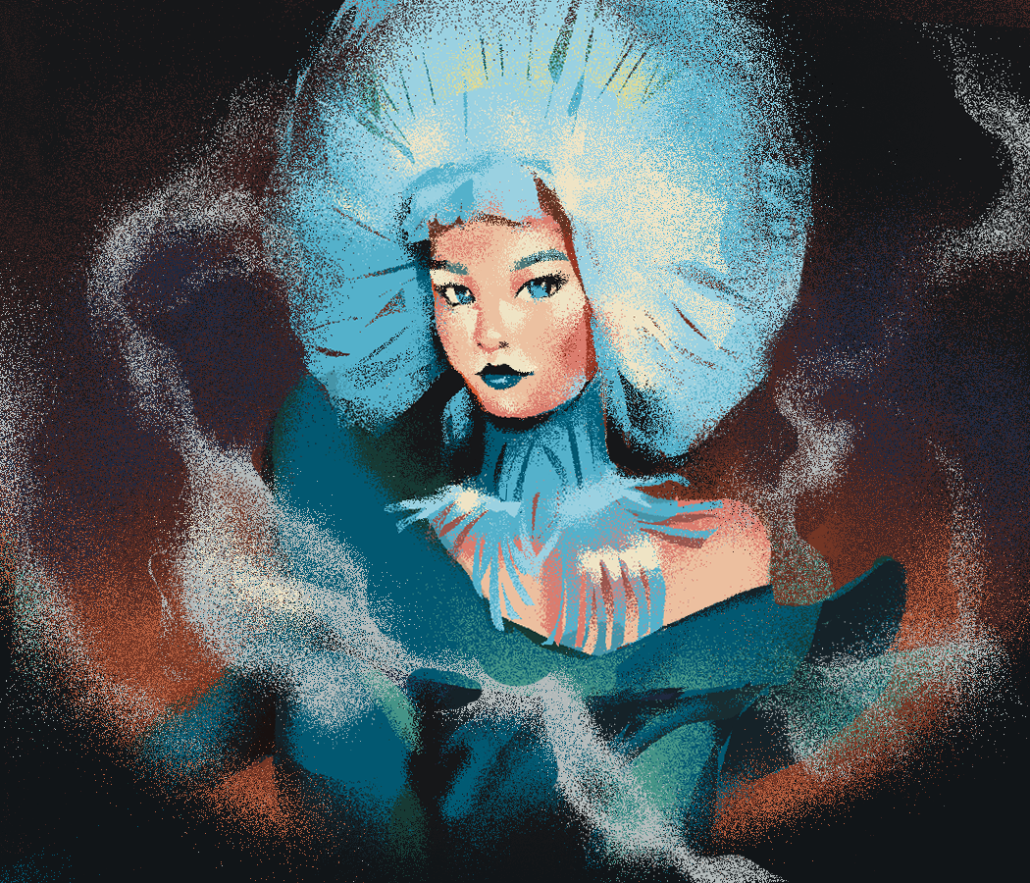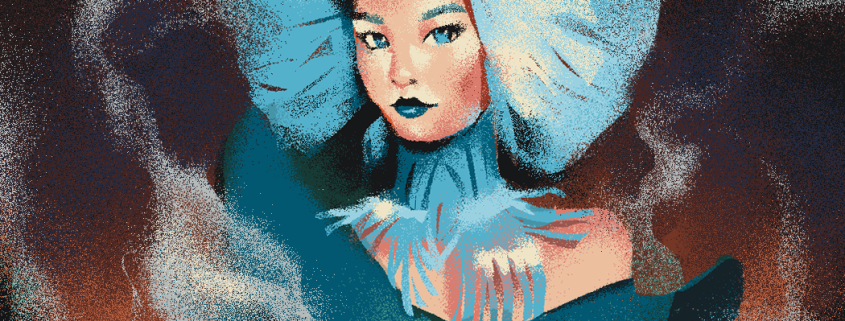Björk marries mushrooms, motherhood on ‘Fossora’

Mushrooms and Björk’s music have a lot in common. Both are wild, but grounded. Their roots both run deep. Either one could be a stubborn relic from some fantastical ancient world, yet they are both very much alive. And when consumed, both can induce psychedelic effects. This is your brain on Björk.
Now spanning four decades, the 56-year-old Icelandic oddball’s career has been marked by reinvention. From the delicate twinkles of 2001’s “Vespertine” to the devastating black hole of 2015’s breakup epic “Vulnicura,” Björk has never made the same album twice. Her singular voice and artistic vision have kept both fans and critics eager to see the world she’ll dream up next.
Her most recent world, as it turns out, was right under our feet.
“Fossora,” Björk’s 10th studio album, is themed around fungus. Exploring themes of motherhood, death, growth and — most prominently — hope, “Fossora” presents an enthralling display of what happens when a seasoned artist ventures back down to earth — literally.
Similar to 2017’s “Utopia,” “Fossora” is an outdoor album, weaving Björk’s equal-parts delicate and harsh vocals into a sprawling quilt of woodwind instruments and elegant production.
But the bird chirps and excess of love songs of “Utopia” are nowhere to be found: if “Utopia” was a bright open field, “Fossora” is a damp forest floor. The sun doesn’t shine here, but something is still growing.
The video for lead single and album opener, “Atopos,” begins with close-up shots of crystalline mushrooms, turquoise and dewy in beds of deep brown soil. The camera then cuts to a silhouetted Björk standing atop a mound of earth and fungus before it ventures in, burrowing beneath her feet. Björk is the master of this twisted biome, and she invites us in. Despite the video’s murky aesthetic, the song’s message is optimistic, if cautionary. “If we don’t grow outwards towards love / we’ll implode inwards towards destruction,” she sings over blaring clarinets. Björk has always written about connection, but it’s never felt quite this dire.
“Atopos” ends with a minute-long hardcore electronic outro that wouldn’t sound out-of-place on a 100 gecs song. Grating, erratic and at first tough-to-swallow, “Atopos” is a fearless reassertion of Björk’s presence on the cutting edge, and a reminder that she has nothing left to prove.
While most of the record is less sonically intense than its opener — although the whimsical “Fungal City” and title track “Fossora” venture into similarly headbanging territory — it is no less emotionally potent.
During the making of “Atopos,” Björk experienced the loss of her mother. While themes of matriarchy run through the entire album, Björk addresses her mother directly on two songs.
The first, “Sorrowful Soil,” as its title suggests, is a melancholy reflection on the struggles of motherhood and her own mother’s resulting nihilism. She ultimately consoles her mother: “You did well / you, you did your best,” she sings.
The other, “Ancestress,” comes directly after “Sorrowful Soil” in the tracklist, and chronologically traces her mother’s presence in her life from childhood lullabies to hospital beds. “My ancestress’ clock is ticking / Her once vibrant rebellion is fading / I am her hope-keeper,” she sings. At over seven minutes, “Ancestress” is the longest song on “Fossora.” It’s a glowing centerpiece for an album centered around personal growth and holding onto hope.
Curiously, the explicit fungal metaphors that spring up frequently across the tracklist are absent in the lyrics of “Ancestress.” The song needs no high concept or artifice — it’s honest, sincere and brimming with wisdom.
Björk employs a handful of collaborators across “Fossora,” but she wrote herself. While Björk’s close friend and frequent collaborator Arca, an experimental visionary herself, is notably absent (she co-produced nearly all of the tracks on “Vulnicura” and “Utopia”), it’s refreshing to see Björk take the helm with force and finesse.
“Fossora” could have easily been a victory lap. Björk certainly understands the breadth and impact of her career: along with “Fossora,” she debuted her “Sonic Symbolism” podcast, in which she goes back and examines each of her past albums in depth. But Björk has never been one to rest on her laurels, and “Fossora” opts to plant something wholly new in her discography.
On mid-album highlight “Allow,” Björk personifies herself as a growing plant, cooing over a bed of flutes. “Allow, allow, allow me to grow,” she sings on the chorus.
Coming from an artist of Björk’s stature, it’s a remarkable statement of humility and a testament to her ever-evolving spirit. Even with her roots digging down through 56 years of life and nearly 30 years of musical releases, Björk still doesn’t have all the answers to life’s mysteries — but she’s still looking for them, and she’s not afraid to get her hands dirty in the process.

